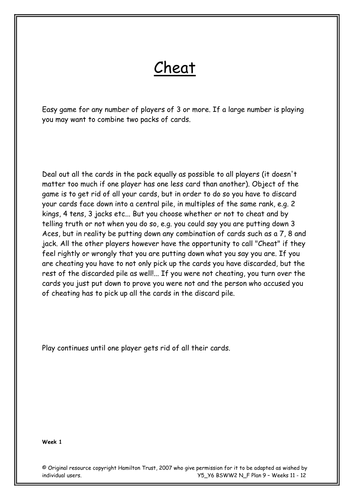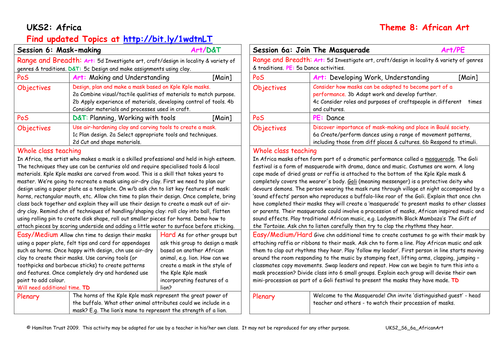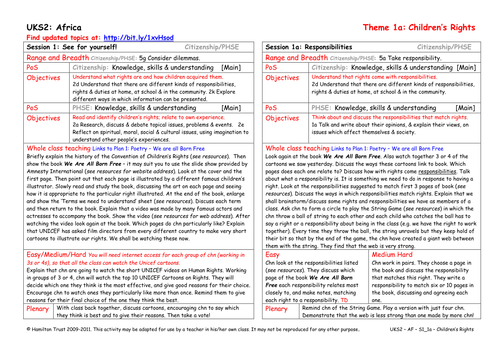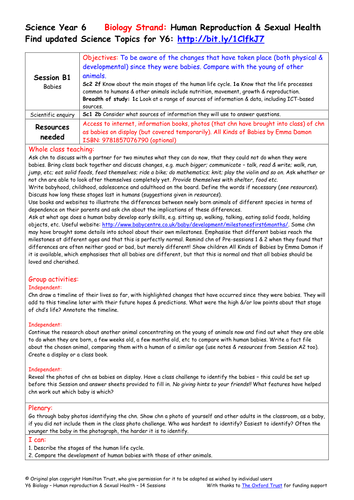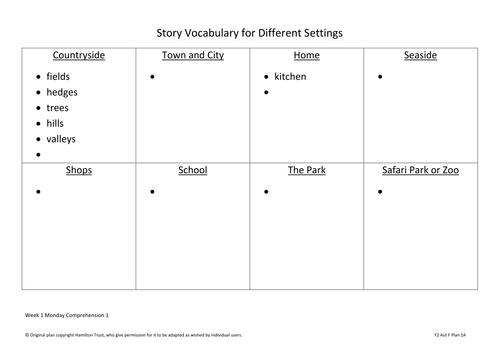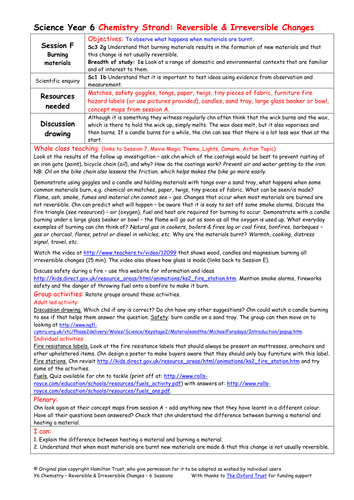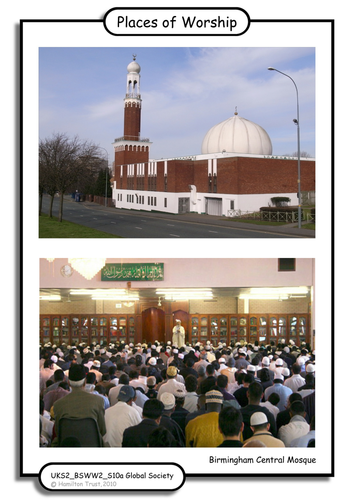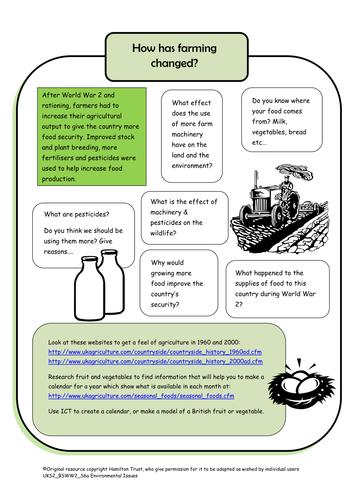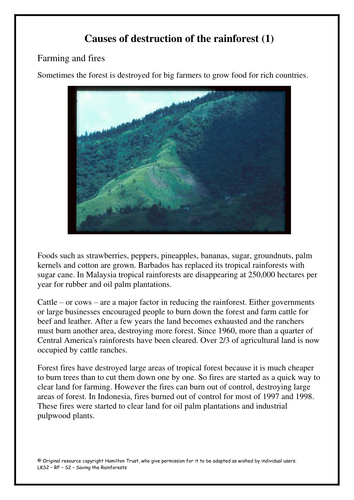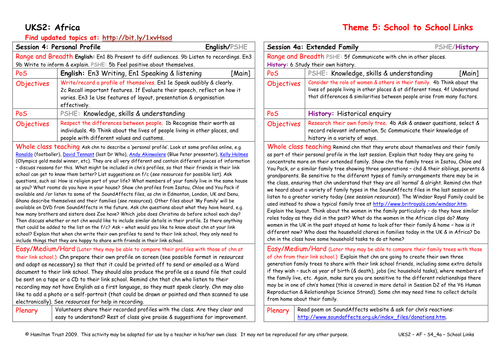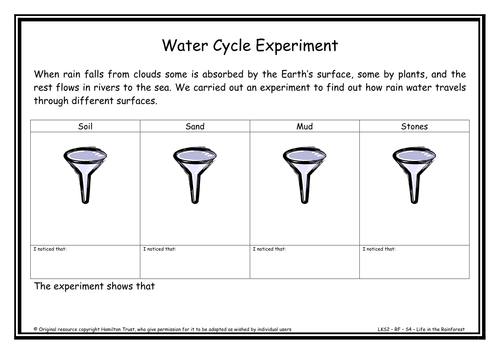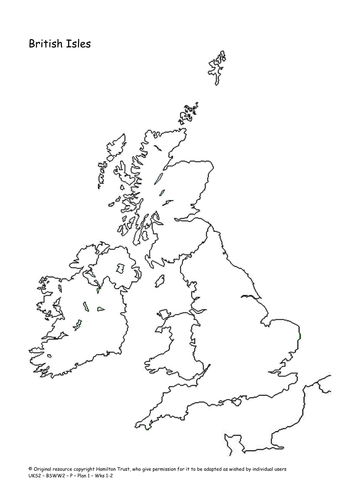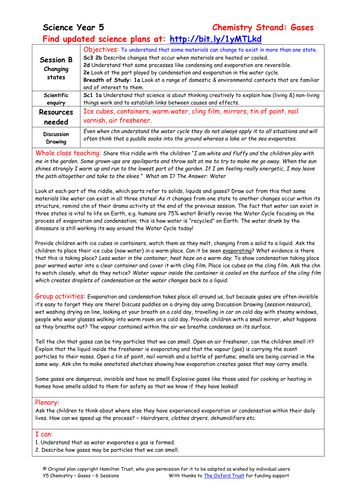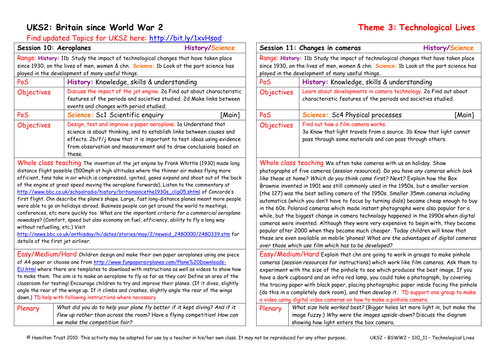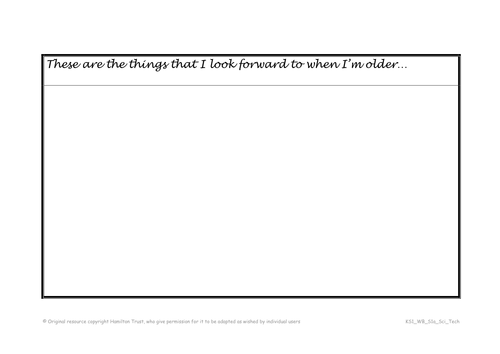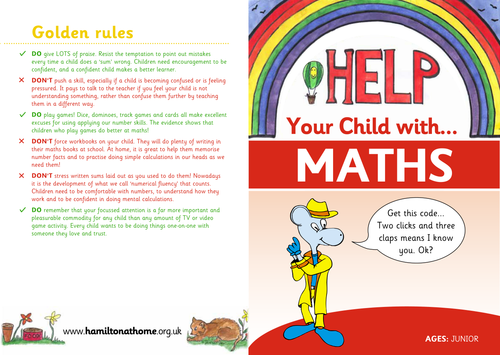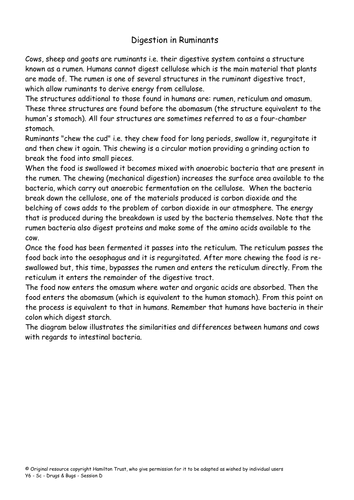
397Uploads
10045k+Views
11647k+Downloads
All resources

Instructions and Explanations Weeks 11 - 12
Wake-up to the 21st century with instructions for computer games, mobile phones and explanations for blogs and podcasts.
Children write a booklet for their granny, giving instructions and explanations to fit her for life in 2010!

Mask Making
Make a Kple Kple mask using air-dry clay. Based on their research children design and make their own versions of these fascinating African masks.

Responsibilities
Discuss how the cartoons seen yesterday link to the book We Are All Born Free. Discuss how with rights come responsibilities and what responsibility means. Play the String Game using rights and responsibilities and discover how strong a net can be made.
Suitable for years 5 and 6.

Babies
Session 1 - Children consider the development that they have undergone since they were babies. Draw a timeline of their lives so far. Continue research into the life stages of another animal concentrating on how quickly the babies develop. Have a baby photo challenge!
Session 2 - Look at the proportions of a human adult as shown by Leonardo’s Vitruvian Man. Investigate the shape changes between a baby and an adult human, concentrating on the head to body length ratio. Measure and draw graphs. Sketch children and adults in proportion.
Suitable for Y6 pupils.

Year 2 Fiction 1: Stories in familiar settings
Explore familiar settings through Margaret Mahy's story A Lion in the Meadow, You Choose by Nick Sharratt and There’s No Such Thing as a Dragon by Jack Kent. Children generate ideas and plan a story about an animal that lives in their house under the stairs. There is a focus on using simple punctuation and story problems and solutions.

Burning materials
Which coverings did prevent nails going rusty? Find out what happens to materials that are burnt, rather than heated – using the fire triangle.
Discuss fire safety including furniture fire hazard labels. Review what children have learnt over the Strand.
Suitable for Y6 pupils.

Places of Worship
One way in which the various religions that are now practised in Britain are noticeable is the building of their places of worship.
Children annotate maps of the local town or city with places of worship or research the places of worship. Add to display.

How Has Farming Changed?
After WW2 and rationing farmers had to increase production. Children discuss where food comes from, and their views on the use of heavy farm machinery and pesticides. Children make a model of a fruit/vegetable or create an ICT presentation showing seasonal availability.

Causes of deforestation research
Children use internet search engines in small groups to find out more about a specific threat to the worlds rainforests. Children collect information in the form of notes and present their concerns and solutions to the class.

Personal Profile
Use celebrity profiles to decide what children might include in their personal profile to introduce themselves to their link school friends. Listen to Ghanaian children describing themselves and their families. Prepare own profiles on screen or as recordings.

Is it sinking in! Rain into Earth
In this session children find out how the rain drops that fall from the clouds get back to the rivers and seas so that the cycle can start again. Children test a variety of natural Earth surfaces to see which allows water to flow through the fastest.
Suitable for years 3 and 4.

Poetic style Weeks 1 - 2
Read and analyse poems from Benjamin Zephaniah’s We are Britain. Discuss the style, language and content of his poems and investigate rhymes. Children write their own poems in the style of BZ’s The British and Body Talk and a fact file about the poet.

Changing states
Water doesn’t just dry up… it changes state! In this session children investigate how water can exist in all three states and look for evidence of water as vapour, drawing diagrams to explain what is happening. Suitable for Year 5 pupils.

Aeroplanes
Children look at different aeroplanes, make paper aeroplanes and then see which flies the furthest.

Who wants to grow up?
Children continue to explore how our bodies and minds change as we get older and how this might affect us in old age. They go on to explore their feelings and frustrations about wanting to be older.

Symbols
In this session symbols say it all! Children discover the conventions that are used in circuit diagrams before using them to create their own. Can they create working circuits from a diagram? Time to find out!
Suitable for Y6 pupils.

Useful micro-organisms
Discuss bacteria living in and on humans and compare our digestive system with that of ruminants. Find out how bacteria help us to recycle waste and make river water safe for us to drink. Visit the Microbe Zoo! Ask 'What does our skin do?' 'Is there life on Mars?'
Suitable for Y6 pupils.

Windrush Migrants
Listen to a poem written by an immigrant on the SS Windrush. Discuss how he felt about leaving his home and the reactions of some British people. Children compare the climate in the Caribbean with that of Britain and write imaginary letters home from a migrant.

